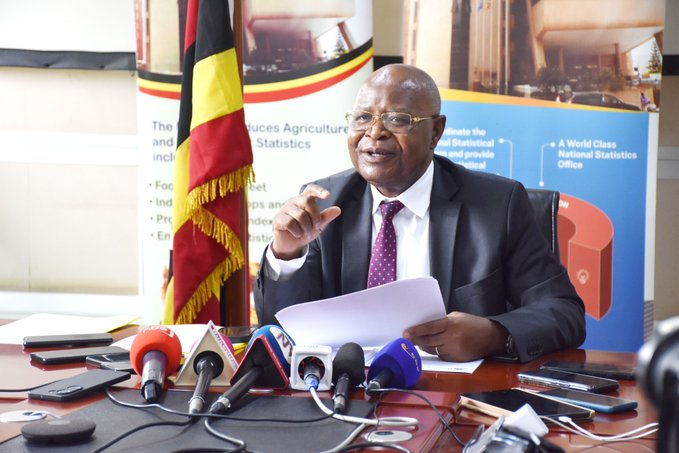Geo-mapping of households and enumeration of area boundaries now at 90%, says UBOS
The agency which supervises and monitors Uganda's National Statistical System highlighted that the field teams are currently mopping up the areas that were previously not covered and the cities around the country.

Uganda Bureau of statistics (UBOS) has confirmed that its geo-mapping of households and enumeration area boundaries is currently standing at 90%, excluding districts such as Kampala, Mukono, Wakiso and Mpigi which are expected to be mapped next week.
The agency which supervises and monitors Uganda’s National Statistical System highlighted that the field teams are currently mopping up the areas that were previously not covered and the cities around the country.
Chris Mukiza, the Executive Director and census commissioner of UBOS, noted that their team is set to complete the exercise in the Greater Kampala Metropolitan Area (GKMA), comprising Kampala, Mukono and Wakiso districts by the end of March 2024.
He added that the development of Digital Maps is now underway to generate Area Maps for the whole Country, which will facilitate an understanding of the Area boundaries in the country.
“We have been listing households in the country. We have done geo-mapping and so far, we have covered 90.3% validated data. There are some districts which think they have 100%. Now when we come back here, in our cartographic system, we find somehow other villages we skipped or other houses were wrongly mapped. So those ones too have to be done, that’s why we are standing at 90.3%,” he said.
Mukiza however emphasized that if at all these records were confirmed, their figure would be standing at 93%. More cleaning is being done according to UBOS so that no household is left behind during the time of carrying out the census.
Additionally, Mr. Mukiza cited that 50 districts have 100% of their data already validated, 58 others having data above 90% which is already cleared and 13 still standing above 80% with validated and cleaned data.
With some districts still remaining below 70%, Mukiza urged the district leaders to ensure that houses in their areas are mapped, and also called upon field officers to make sure data reaches 100%.
“When your household or village is not mapped, chances are that the enumerators during the census may skip you, because we are going to be using an interactive digital map. You remember when I demonstrated that once an enumerator is given a certain village, when you key in the tablet, the area will come. Once you enumerate it, it turns green,” he explained.
During 2022, the authority reported that government was to procure at least 150,000 tablets for use during the census. With this Dr. Mukiza revealed that so far, the Bureau has completed identifying both international and domestic suppliers.
He noted that the first batch of the tablets is expected by mid-March 2024 and the last batch will be received in early April 2024.
“We are also using domestic companies to promote domestic production. One of our conditions for using them is to ensure that Ugandans are being employed. There’s a firm based in Mbale which is producing 20,000 tablets for us. That was the capacity they would manage, the rest we will be procuring from outside,”
Procurement of other required materials that will be used by the field staff such as reflector jackets is on-going according to UBOS, and this will be done locally within Uganda. The field staff who will have reflectors of UBOS are to be recruited based on the districts where they come from.
Mr. Mukiza says the authority will raise about 120,000 field workers, after advertising the recruitment processes, so that those eligible can apply to be part of the census.
The executive director UBOS has also informed the general public that they are yet to procure a data processing center that’s currently needed to process the servers which will be compiling the data.
“We have even cyber security experts in the bureau. We shall encrypt the data and the super high way will not be diverted. It’s from the enumerator to the main server. We have profiled all the inherent risks and also looked at the residual risks. These may include attacks, diversion of the data which may be found in wrong hands,” said Mukiza reflecting how data collected will be safe once collected.
Once risks of gadgets failing while in field or appearing to be late for delivery, Mukiza stressed that all enumerators who are to be deployed, it will be a must for them to have smart phones with capacity to roll questions and digital maps for use.
The census exercise that will take place on May 9, 2024, will use digital technology to collect, process, and disseminate census results. The digital census will enable the Uganda Bureau of Statistics (UBOS) to produce accurate and timely demographic, social, and economic statistics.







